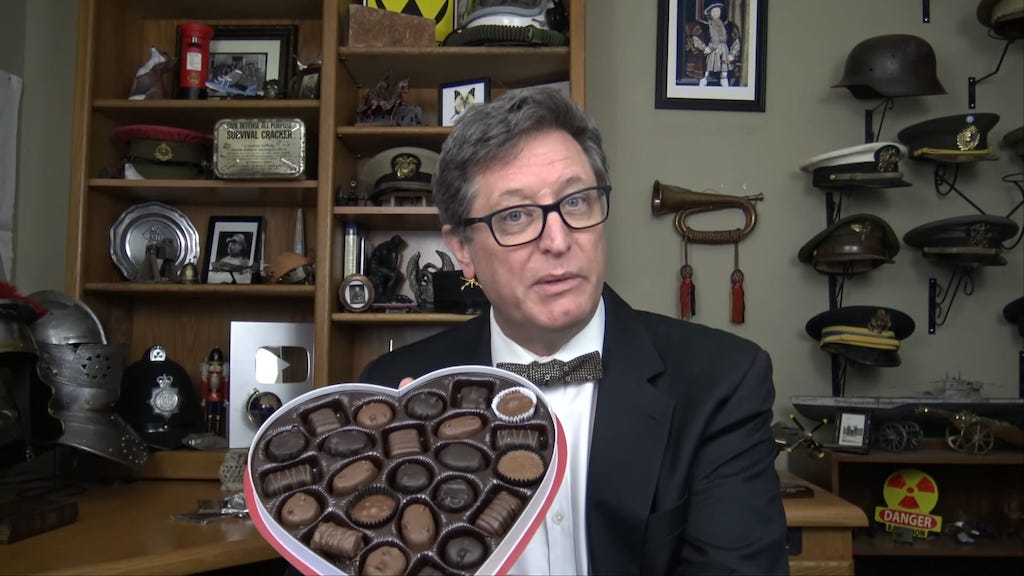The History Guy (Lance Geiger) offered a very eloquent tour into the long and rather bittersweet history of chocolate. Geiger explains that chocolate, as we know it today, is a rather recent innovation as when the cacao bean was discovered, it was only used to make drinks of varying sweetness.
While the dried and permitted seeds of the Theobroma cacao plant had been part of human cuisine and culture for as long as 5000 years the stuff that you find in a box of chocolates is a surprisingly recent invention.

The original version of chocolate was so bitter that the word “chocolaté” means “bitter drink” in Aztec. Despite the bitter taste of chocolate, Aztecs, Mayans, and then later, Europeans would continue to only make drinks out of cacao beans.
So in the as much as 5,000 years of human history with the cacao plant, still all we were using chocolate for was to make chocolate drinks. I mean, seriously no chocolate bits with chewy centers, no candy bars made of impossibly small squares, not even a chocolate chip.
It wasn’t until the early 19th century that the modern form of chocolate would be discovered.
The breakthrough came in 1828 when a Dutch chocolatier named Casparis van Houten patented a hydraulic press that removed a large amount of the natural fat called cocoa butter that was in the nub of the cocoa bean….van Hauten’s son Conrad then developed a process that added alkaline salts, potassium, or sodium bicarbonates to …reduce the alkaline taste, producing a milder taste. The process creates something called dutch chocolate and it is the basis of virtually every chocolate product today
After the van Houtens’ inventions, chocolatiers such as Fry and Sons, Cadbury, Hershey, Lindt, and Mars came up with their chocolate bars. And holidays that market their wares.
While no sane person should require an excuse to eat chocolate nonetheless we continue to think them up. On Valentine’s day February 14th, Americans will spend about 1.4 billion on candy and consume some 36 million heart-shaped boxes of chocolates.

0 Commentaires